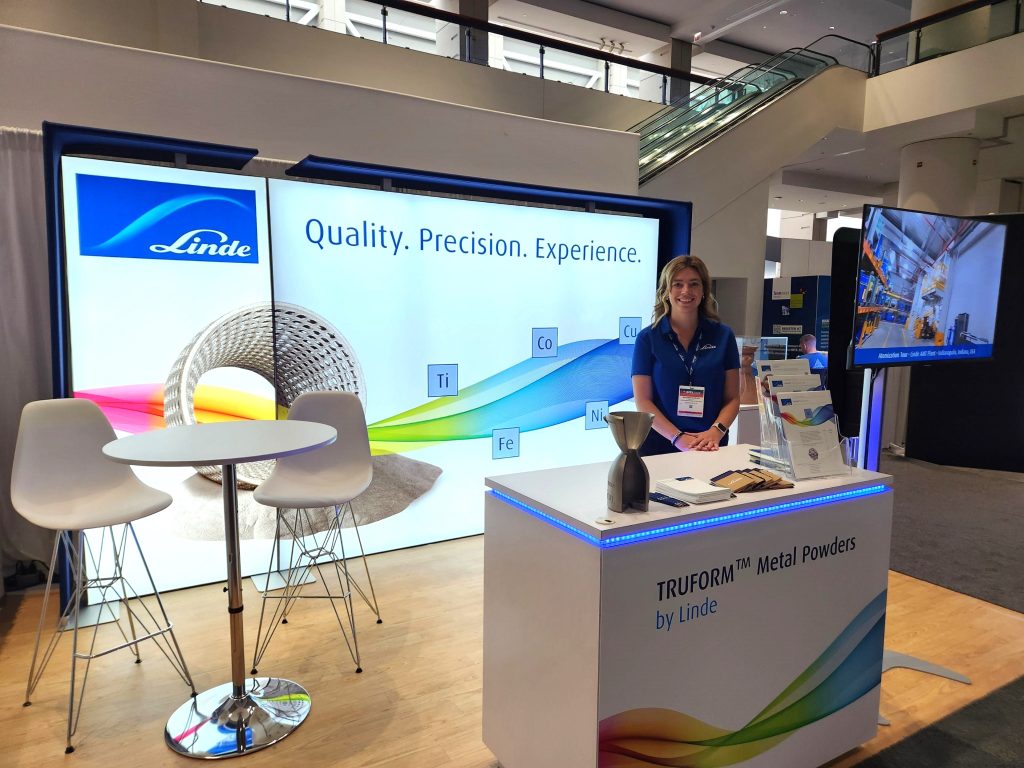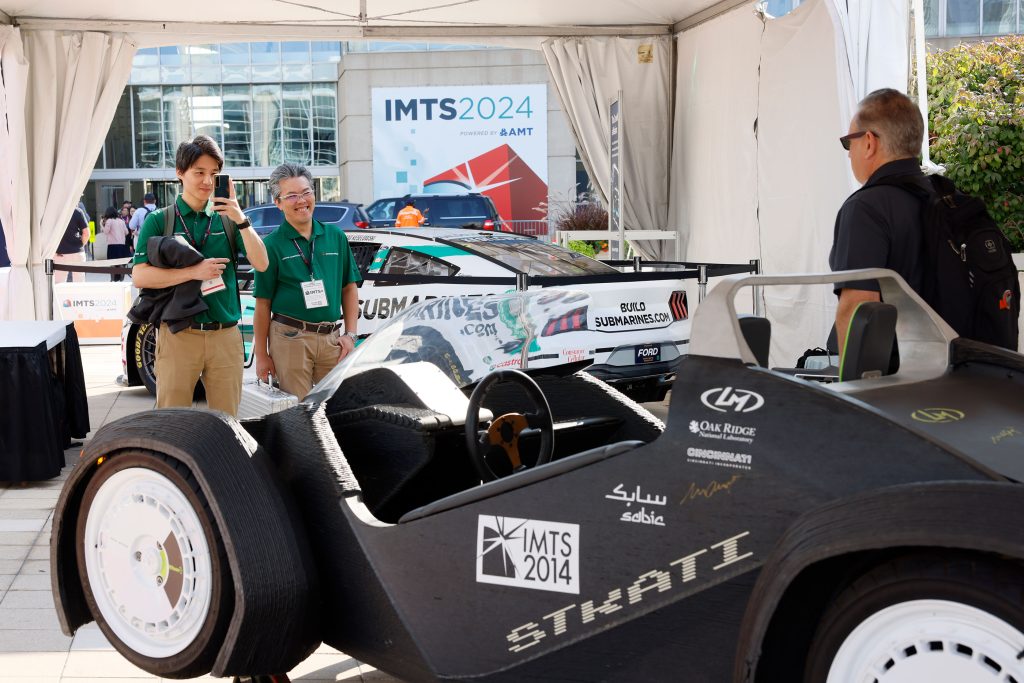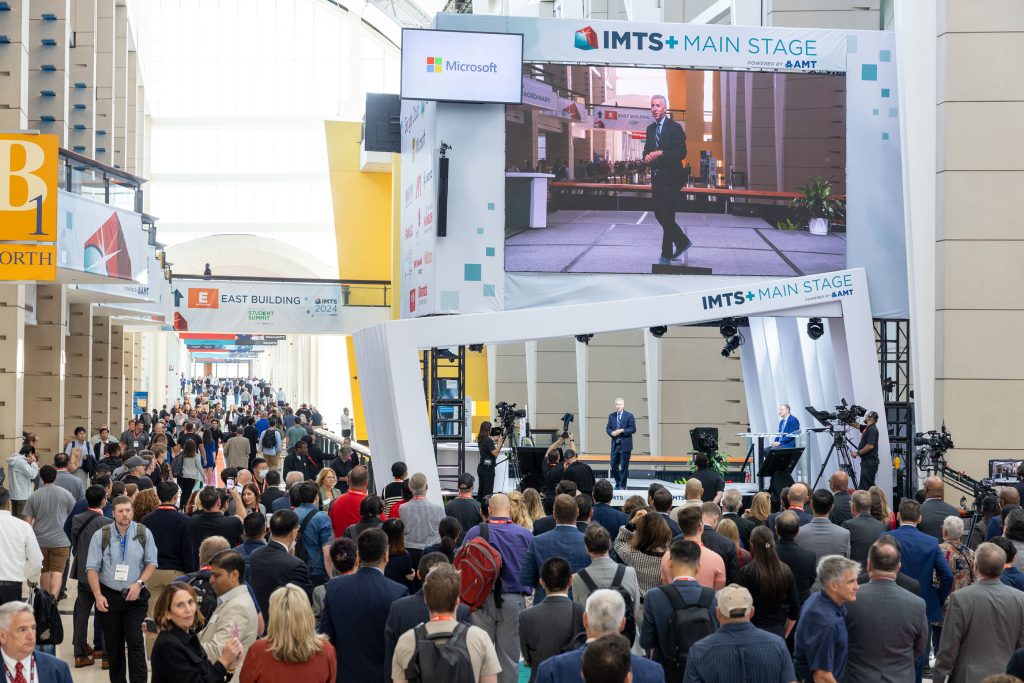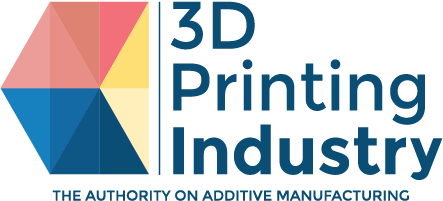The International Manufacturing Technology Show (IMTS) 2024 demonstrated the continued evolution of additive manufacturing (AM) within the global manufacturing ecosystem. With nearly 90,000 attendees and more than 1,700 exhibitors, the event highlighted the role of AM, automation, and AI in transforming manufacturing processes. 3D Printing Industry asked several first-time exhibitors for their insights on how AM is shaping the future of production and for the trends at this year’s IMTS.
Würth Additive Group’s Global Marketing Lead, Katelyn Lennon, marked their second time exhibiting at IMTS, showcasing both their physical and digital inventory solutions. “This year was the first time we could strategically plan for additive manufacturing in mind,” Lennon explained. The Würth team introduced attendees to their Digital Inventory Services (DIS) technology, emphasizing how AM complements traditional supply chains and supports long-term operational goals by offering digital distribution as a backup to physical inventories. The team observed a growing interest in AM applications designed to improve factory floor operations, such as tooling and fixtures.
Caracol, a newcomer to the show, presented its large-format additive manufacturing (LFAM) platform. Violetta Nespolo, Chief Marketing & Strategy Officer, explained, “we’re seeing a shift in perception and a need to truly validate what AM can do for manufacturers across sectors.” Nespolo explained that while some initially thought AM would replace entire manufacturing processes, it’s now clear that it’s a complementary tool for specific applications. Caracol’s platform, demonstrated in collaboration with KUKA, generated interest in sectors like shipbuilding and aerospace, where LFAM can streamline production processes by printing near-net-shape parts and eliminating steps like mold-making and CNC machining.
Linde Advanced Material Technologies also had its IMTS debut this year, motivated by the increasing global adoption of AM. Luiza Faro, Global Marketing Communications Manager, highlighted the growing attention to materials in AM, especially in the metal powder segment. Faro noted that companies are exploring custom materials tailored for specific applications to improve efficiency and performance, underscoring the importance of powder supply and quality in successful AM operations.

Forecast 3D powered by GKN returned to the event under their new branding after the acquisition of Forecast 3D by GKN. VP of Commercial Ken Burns remarked on the shift in AM’s focus at the show. “There was certainly a focus at this show to position solutions that really focus on competing with other manufacturing processes,” Burns observed, and less, “tchotchkes spread on a table.” Despite some location challenges, GKN + Forecast 3D engaged with high-quality traffic, showcasing AM solutions geared toward competing with traditional manufacturing processes.
Key 3D printing trends at IMTS 2024
According to Würth, there’s a growing focus on AM applications for factory operations, for example tooling and fixtures. Würth emphasizes inventory management tailored for the factory floor as a significant trend to watch.
Caracol identified a shift in focus to validating AM’s value in real-world applications, with an emphasis on cost and process efficiency. Linde noted that the focus on materials for AM is increasing, particularly in metal powder quality and custom materials for productivity. Forecast 3D observed how AM is evolving beyond basic displays to focus on solving concrete manufacturing problems.
With additive manufacturing now rightly considered in relation to the broader manufacturing ecosystem, how do does AM fit? Wurth highlighted how AM complements traditional distribution channels and enhances engineering, sourcing, and long-term planning. It provides digital backups and supports operational continuity. This subject was also picked up by Linde, who see AM enhancing traditional manufacturing but not fully replacing it, especially when achieving complex designs. Likewise, at Caracol, AM is also seen as a tool to complement rather than replace traditional processes. Specific sectors (e.g., marine, aerospace) are using large-format AM (LFAM) for specific parts.

Advanced Manufacturing Technology Accelerates
Beyond the exhibitors, event producer AMT – The Association for Manufacturing Technology highlighted IMTS 2024’s emphasis on digital transformation and productivity solutions. Peter R. Eelman, AMT’s chief experience officer, stated, “IMTS 2024 will accelerate the adoption of advanced technology in ways visitors could not have imagined before the show.” With over 40 million pounds of machinery on display, the event set a new standard for integrated manufacturing solutions.
A key theme across the show was the increasing roles of automation and AI in the manufacturing landscape. Attendees explored how manufacturing, when combined with cloud-based applications and AI-driven solutions, could unlock greater efficiency. Companies like Microsoft, AWS, and Google Cloud presented case studies on how their platforms are enhancing factory productivity, while exhibitors demonstrated automation systems aimed at overcoming labor shortages and improving repeatability.
IMTS also served as a critical venue for contract manufacturers to explore new business opportunities. For the first time, the U.S. Navy participated, seeking partnerships with manufacturers for its submarine industrial base. Rear Admiral Todd S. Weeks emphasized the Navy’s need for small and medium-sized manufacturers to support critical defense projects, “The Navy is here [at IMTS] to support the recapitalization of American manufacturing.”
As AM continues to evolve, the technology is moving beyond the initial hype to prove its value in real-world applications. IMTS 2024 underscored this shift, with exhibitors focused on showing tangible benefits in cost, time, and process efficiency. From factory floor solutions to materials innovation, AM is firmly establishing itself as an indispensable tool in modern manufacturing.

IMTS by the Numbers:
– 89,020 registrants attended the show, including 14,731 students who participated in the Smartforce Student Summit.
– 1,737 exhibitors spread across 1,609 booths showcased cutting-edge technology, covering more than 1.2 million square feet of space.
– The show featured 40 million pounds of machinery, positioning IMTS 2024 as a global leader in manufacturing innovation.
With IMTS 2024 now concluded, the focus shifts to the future. Manufacturers and exhibitors alike have some time to reset and prepare for the next edition, IMTS 2026, set for September 14-19 at McCormick Place in Chicago.
Want to help select the winners of the 2024 3D Printing Industry Awards? Nominate now!
What does the future of 3D printing hold?
What near-term 3D printing trends have been highlighted by industry experts?
Subscribe to the 3D Printing Industry newsletter to keep up to date with the latest 3D printing news.
You can also follow us on Twitter, like our Facebook page, and subscribe to the 3D Printing Industry Youtube channel to access more exclusive content.
Featured image shows a regular, and one of this writers favourite features of IMTS. Photo via IMTS.



